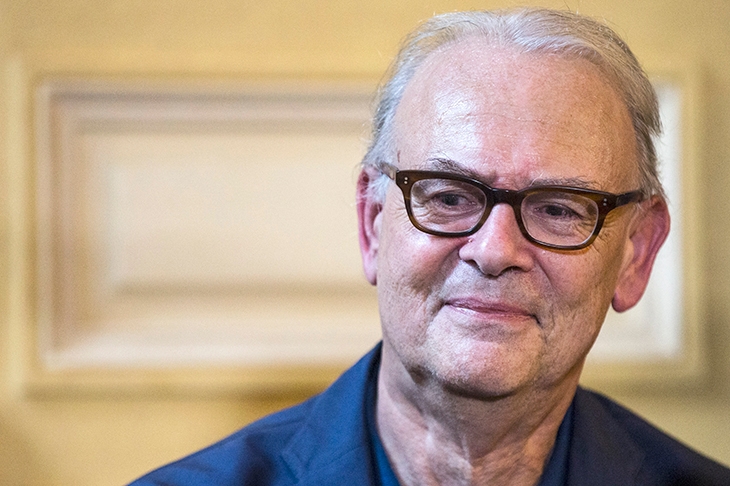At some point in his twilit, enigmatic novels of vanished lives and buried memories, Patrick Modiano likes to jolt his reader with a glimpse of the all-too-real horrors that underpin his work. In Invisible Ink such a moment comes when the narrator recalls images from a postwar trial, where ‘behind the accused were about 30 suitcases — the only remaining traces of persons who had gone missing’.
You might say that Modiano has spent a literary lifetime opening those suitcases to find out whose lives they contained. Born in Paris in 1945 to a Belgian actress mother and a Jewish father who had survived the Occupation by weaving through an underworld of shady deals, he grew up in a family microclimate of evasion and oblivion. It matched the public amnesia about collaboration and betrayal in France itself. ‘Faced with the silence of our parents, we worked it all out,’ he said in his 2014 Nobel lecture (a model of its kind, by the way) after, to some surprise beyond France, he won the prize.

Several of his brief, sinister and peerlessly atmospheric books — more than 20 since 1968 — have plunged overtly into what he calls the ‘primordial darkness’ of Paris under Nazi rule. The early ‘Occupation trilogy’, the semi-documentary search for the fate of one girl deported to Auschwitz in Dora Bruder, and the succinct but scorching revelations of his memoir Pedigree, gaze into the molten core of the trauma he inherited. Much of his fiction, though, tells obliquely of detective quests for forgotten or erased persons and events through the streets of an eerily inscrutable metropolis. Here the sleuth must decrypt an obliterated past as if it were (as Invisible Ink puts it) ‘an ancient language. Like Etruscan’. His amnesiac Paris becomes a city where everyone disappears — if not quite without trace.







Comments
Join the debate for just £1 a month
Be part of the conversation with other Spectator readers by getting your first three months for £3.
UNLOCK ACCESS Just £1 a monthAlready a subscriber? Log in